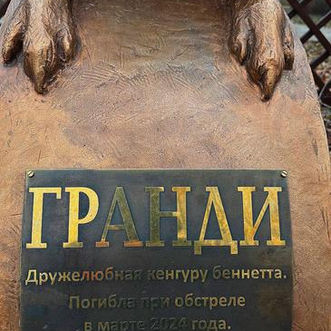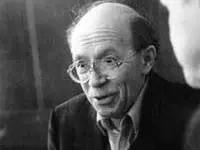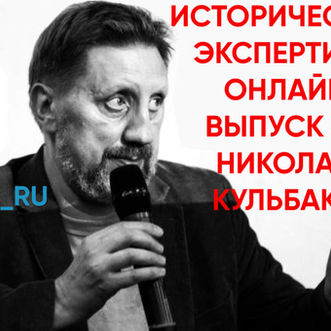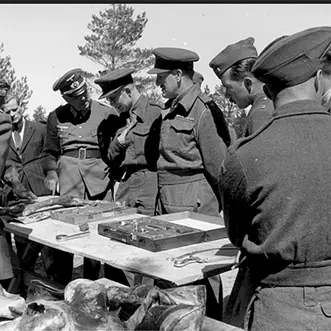top of page
ПУБЛИКАЦИИ
Поиск


Алексей Русанов: Перебор или Учебник исторической дезинформации. Часть I
31 фактическая ошибка на 6 страницах учебника, который был одобрен и выпущен в свет «правительством профессионалов» имени Санду на...


Михаил Минаков: «Для публичного интеллектуала и конституционного патриота нужны времена мира и республики»
Вашему вниманию предлагается текстовая версия 60 выпуска передачи Историческая экспертиза онлайн . Гостем передачи был философ, политолог...


Анна Сойфер: воспоминания о холокосте в Бессарабии
Продолжаем наш проект #Никто_не_забыт? 1940-е. Трагедия на двух берегах Днестра. Публикация материалов ЧГК по МССР в контексте семейной...


Памяти Виктора Павловича Макаренко
17 июля в Ростове-на-Дону ушел из жизни профессор В. П. Макаренко. Его научная деятельность в основном была связана с Ростовским...


Поколение победобесия/The Generation of Victory Obsession
Аннотация Статья посвящена анализу поколенческих особенностей авторов так называемой «попаданческой литературы» и их корреляции с...


Навечно в памяти народной? Изменение мемориальных конвенций в отношении ВОВ на фоне СВО
Рубрика «Препринт» предусматривает фактчекинг с помощью наших читателей. Будем признательны за ваши замечания. Присылайте их на...


Андрей Олейников. «ИСТОРИЧЕСКОЕ НАСТОЯЩЕЕ» МИХАИЛА ГЕФТЕРА
Аннотация . Статья развивает тему, затронутую в реплике, произнесенной на круглом столе «Актуальность Гефтера», прошедшем онлайн 12...


Ирина Сандомирская. Михаил Гефтер на просторах отсутствия
Аннотация : Идеи «истощения истории» у Михаила Гефтера рассматриваются через призму размышлений Герцена о «просторе отсутствия», т.е. об...


Историческая экспертиза онлайн. Выпуск 46
Николай Кульбака: Транспортные коридоры России. Актуальное прошлое. Трансляция состоялась в среду 2 апреля 2025 года. Наш гость: Николай...


Историческая экспертиза онлайн. Выпуск 45
Проблемы чешской и словацкой исторической памяти Трансляция состоялась в субботу 29 марта 2025 года. Наши гости: Андрей Шарый ,...


Историческая экспертиза онлайн. Выпуск 44
Как вести себя при обыске, аресте, на следствии, на суде и в тюрьме. По материалам книги: Александр Подрабинек. Клеточников. М., 2025....


Историческая экспертиза онлайн. Выпуск 43
Время историка: Елена Михайлик Трансляция состоялась в субботу 22 марта 2025 года. Наш гость: Елена Юрьевна Михайлик , поэт, филолог,...


Историческая экспертиза онлайн. Выпуск 42
Время историка: Хенрик Баран Трансляция состоялась в среду 19 марта 2025 года. Наш гость: Хенрик Баран , заслуженный профессор...


Ивлиева В. Человек вопрошающий
Отклик на сборник текстов Михаила Гефтера «Между гибелью и эволюцией» (М: Фонд «Связь эпох», 2024; сост. Мих. Рожанский) включает в себя...


Ukraine. June 2025
Хроника исторической политики: Украина Июнь 2025 Основные сокращения: ВСУ – Вооруженные силы Украины ВС РФ – Вооруженные силы Российской...


Рожанский М.Я. Михаил Гефтер: оптика историка и инструментальность философии
Представление сборника Михаила Гефтера «Между гибелью и эволюцией» (М.: Фонд «Связь эпох», 2024) на обсуждении, организованном журналом...


Родионов И. В. Большая история и её метасюжеты в творчестве Василия Зубакина.
Рец.: Зубакин В.А. На службе Его Величества. М.: Время, 2025. 352 с. А также: Зубакин В.А. В тени трона. М.: Время, 2022. Аннотация: В...


Ukraine. May 2025
Хроника исторической политики: Украина Май 2025 Основные сокращения: ВСУ – Вооруженные силы Украины ВС РФ – Вооруженные силы Российской...


С. Романов. Историческая правда о катынском преступлении: доказательства против отрицания.
Изображение: https://harriman.columbia.edu/event/the-katyn-massacre-on-the-80th-anniversary-of-the-exhumations/ С. Романов, главный...


Russia. December 2024 – February 2025
Сергей Эрлих. Хроника исторической политики. Россия. Декабрь 2024 — февраль 2025. Аннотация: Историческая политика зимы 2024–2025...
bottom of page
